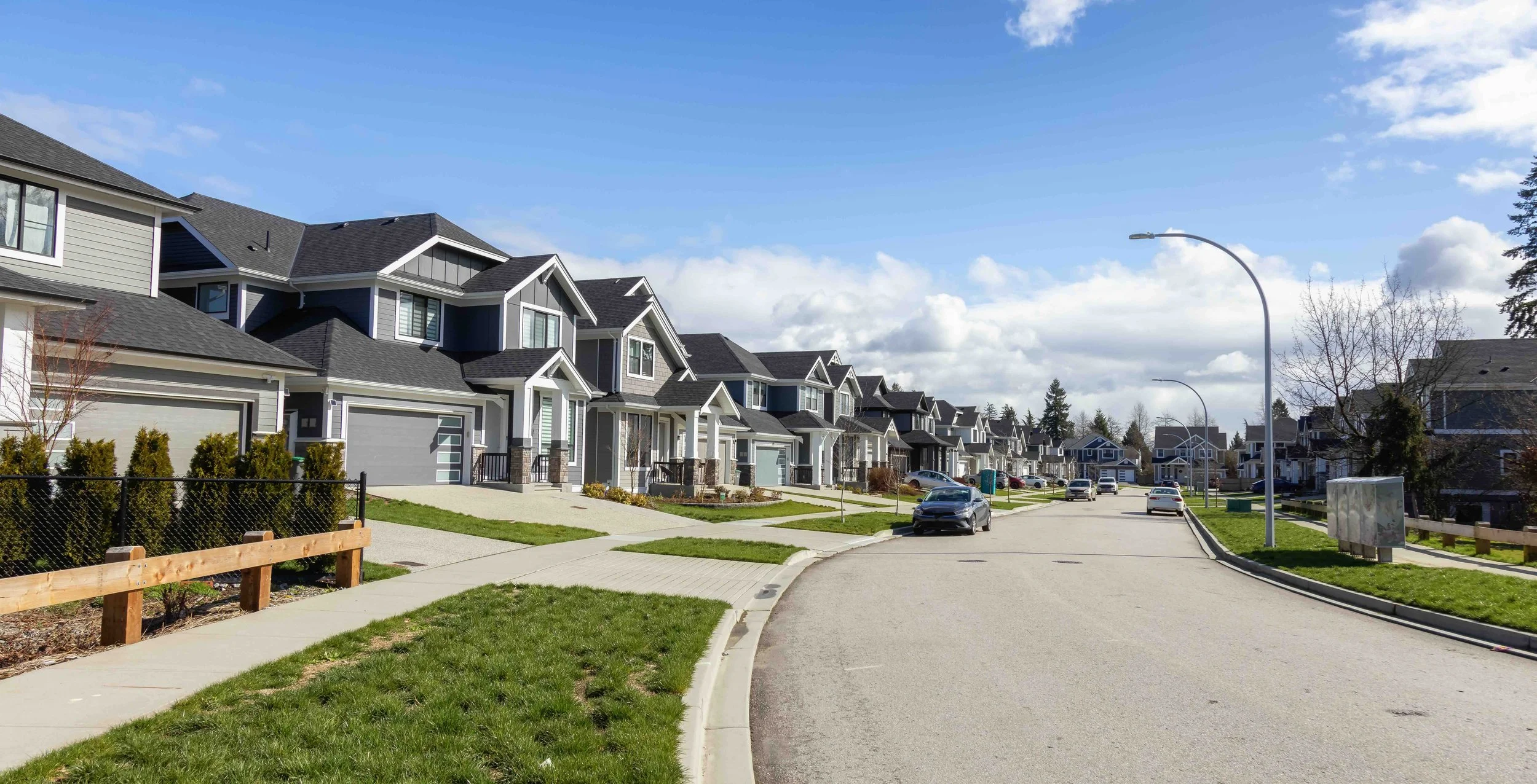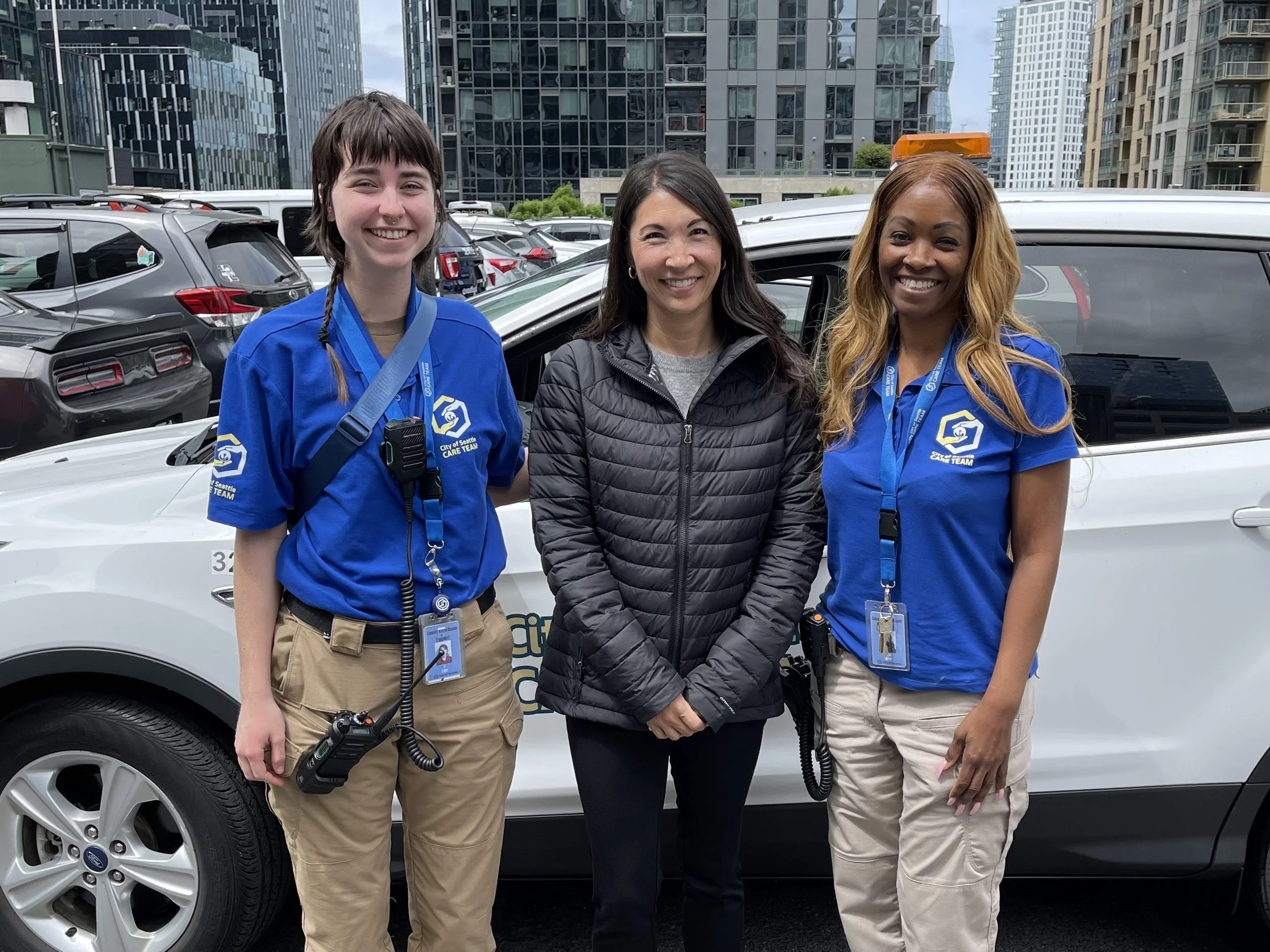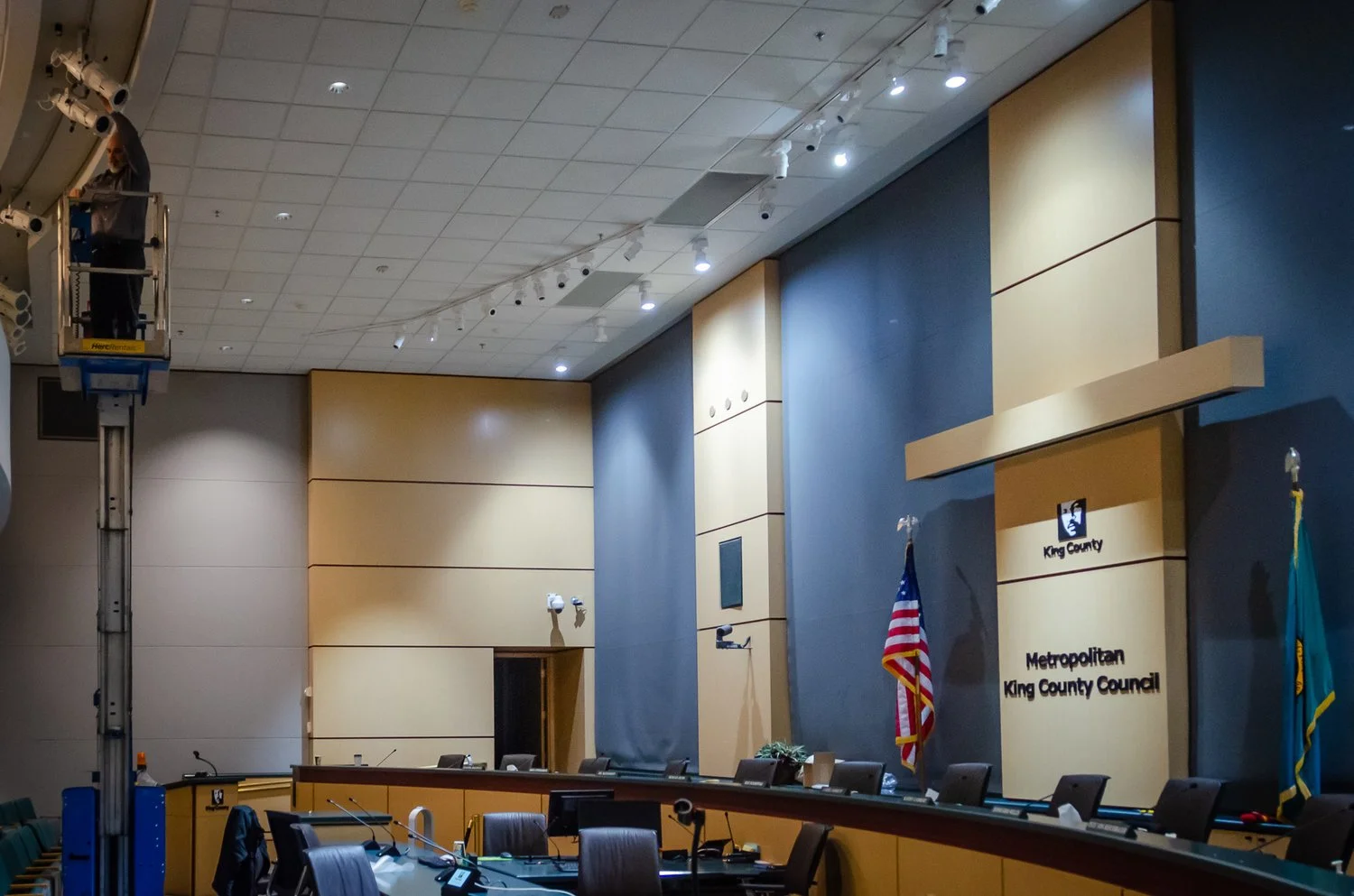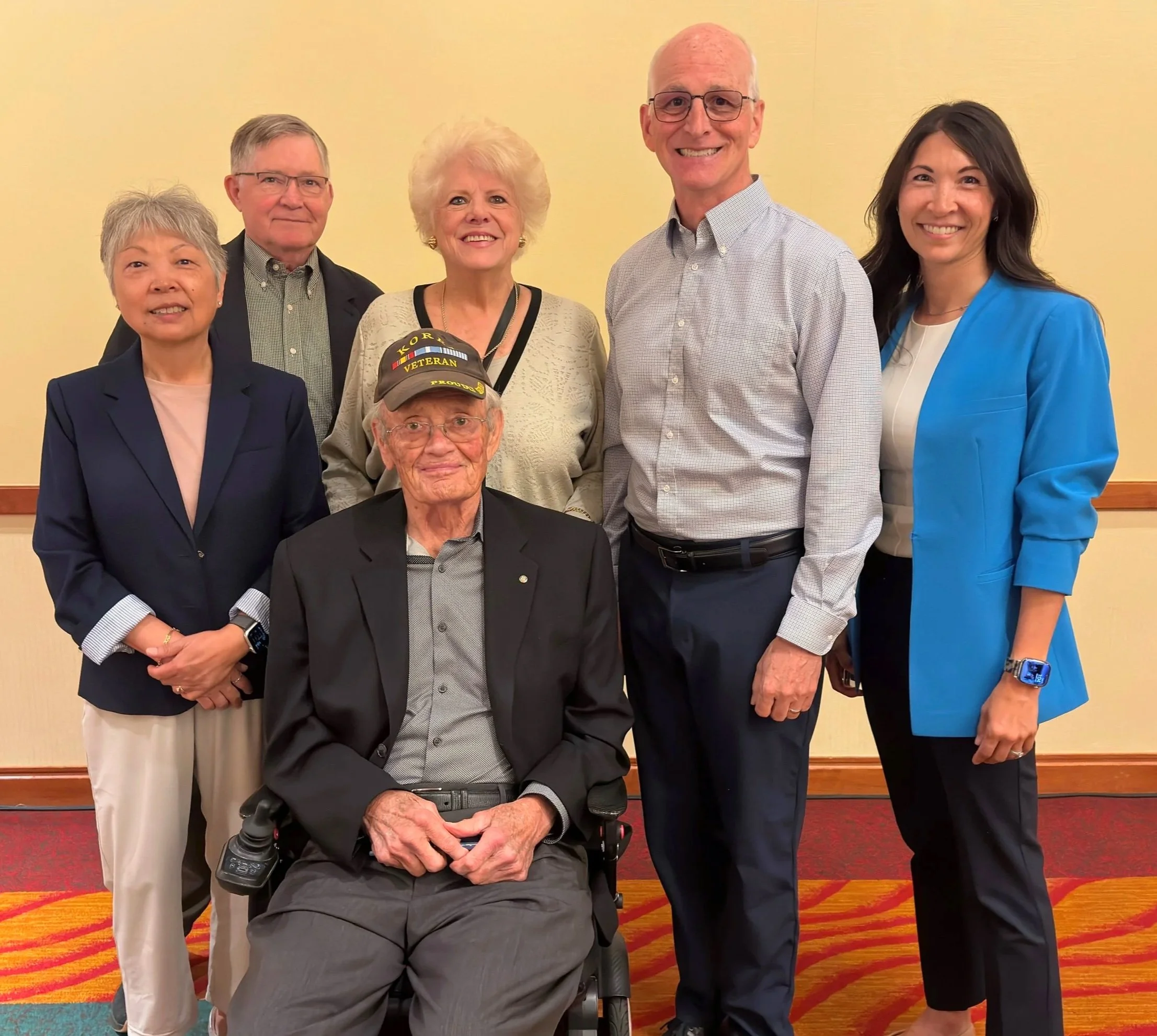The Issues That Matter
As a longtime South King County resident, public-school parent, youth sports coach, and community volunteer, I understand the importance of stability, safety, and opportunity for our diverse community.
South King County deserves strong, effective, and proactive representation on the King County Council. The issues I hear most from our neighbors are affordability, public safety, housing, and government transparency. People want to live in the communities they’ve helped build - without being priced out by rising housing costs and everyday expenses - and to feel safe and supported in their neighborhoods.
I am committed to advancing practical, coordinated solutions that tackle the root causes of rising costs, providing meaningful support for those experiencing behavioral health crises, and ensuring that the tax dollars generated by South King County are reinvested into our community, delivering real, measurable benefits to families, neighborhoods, and local services.
-

Housing.
I’ll support a balanced approach to increasing supply in a way that both expands affordable and workforce housing options across income levels but also protects long-standing communities from displacement. We need more housing, faster. And we need to build it in the right places, with the right tools.
-

Affordability.
Too many people in South King County are being priced out of the communities they’ve helped build. Whether it’s rising housing and insurance costs, utility bills, or childcare expenses, the cost of living is outpacing wages—and families are feeling the squeeze.
-

Public Safety.
I’ll work to rebuild trust and improve response times by pairing strong accountability with the right mix of resources—investing in first responders, expanding behavioral health teams, and strengthening culturally responsive crisis response options.
-

Homelessness.
Homelessness is one of the most visible and urgent challenges facing our region and a symptom of deeper system failures in behavioral health, housing access, and care coordination. Addressing it means moving beyond one-size-fits-all approaches, with tailored solutions that provide stable housing, expand access to treatment, and ensure people get the support they need to rebuild their lives.
Affordability
We need to take a comprehensive, county-wide approach to reduce everyday costs for working families, seniors, and small businesses.
That includes expanding access to affordable childcare and afterschool programs, giving more property tax relief for seniors and low-income homeowners, and strengthening programs that help renters stay in their homes.
Affordability isn’t just about housing—it’s about ensuring people can thrive here, not just survive. That means investing in the supports that residents rely on, creating more access to workforce development and jobs, and making sure public dollars are being spent wisely to deliver real value for everyone in South King County.
Housing
Everyone deserves a safe, affordable place to call home. But right now, too many families are being priced out of the communities they love. We can change that by building more homes people can afford without years of red tape and unnecessary costs.
That means updating outdated zoning rules, speeding up the permitting process, and using technology to review projects faster. We should plan new housing near transit and schools, and offer more options, such as backyard cottages (ADUs), townhomes, and small apartment buildings, so people at every stage of life have a place that works for them.
We also have to make sure that building in one city doesn’t push families into another. Housing and transit planning should work together across King County, because this is a shared challenge and no single community can solve this alone.
Public Safety
Everyone deserves to feel safe—in their neighborhood, on transit, and at work. True public safety requires investing in the systems that keep people stable and prevent harm before it happens.
We must also treat acts of violence, home invasion, organized retail theft, and drug trafficking as the serious crimes they are, holding offenders accountable while also ensuring the system works for victims and communities.
Local first responders have told me the same thing: they are stretched thin and need more support to respond effectively and build relationships in the community.
At the same time, we must expand co-responder and alternative response programs that connect people in crisis with the right kind of help. On a recent ride-along with a local co-responder team, I saw how well these models can work, but only if we remove the barriers to shelter, treatment, and stabilization. Without real-time data, sustainable funding, and strong regional coordination, too many people fall through the cracks because services aren’t connected.
Behavioral health must be part of a fully integrated continuum of care, with supports that follow people through transitions like detox, inpatient treatment, housing, and long-term recovery. That’s why I also support earlier investments in youth violence prevention, school-based mental health, and community-centered crisis response. Expanding effective and accountable diversion programs and supporting victim services alongside law enforcement creates a system that is fair and accountable.
Public safety should be grounded in collaboration and trust. We can re-establish both by being honest about what’s working, holding both offenders and the system accountable, and making sure public systems are not just well-intentioned—but effective.
Preventing Gun Violence
Every family deserves to feel safe in their neighborhood, at school, and in our public spaces. I support common-sense, evidence-based measures to prevent gun violence—like safe storage, stronger background checks, and investing in community-based prevention programs. As a mom, youth coach, and public safety advocate, I believe reducing gun violence requires both accountability and upstream investments in mental health, crisis response, and youth opportunity. I am committed to working with survivors, law enforcement, and community leaders to advance policies that keep our communities safe.
Homelessness
We need a broader, more flexible approach to homelessness—one that reflects the reality of people’s lives and the different paths that lead to living without stable housing.
That means providing safe shelters, transitional housing, supportive services, and clear pathways to treatment and recovery for those struggling with mental health or addiction.
The goal isn’t just to get people indoors for a night. It’s to help everyone find lasting stability. That requires a full, flexible network of care that works together, with real-time coordination between providers and funding that supports solutions that work.
This is a challenge we can solve, but only if we focus on connecting services, measuring outcomes, and keeping our response both compassionate and effective. Our goal must be to move people not just into housing, but toward lasting stability, supported by a continuum of care that is coordinated and measured by real results.







